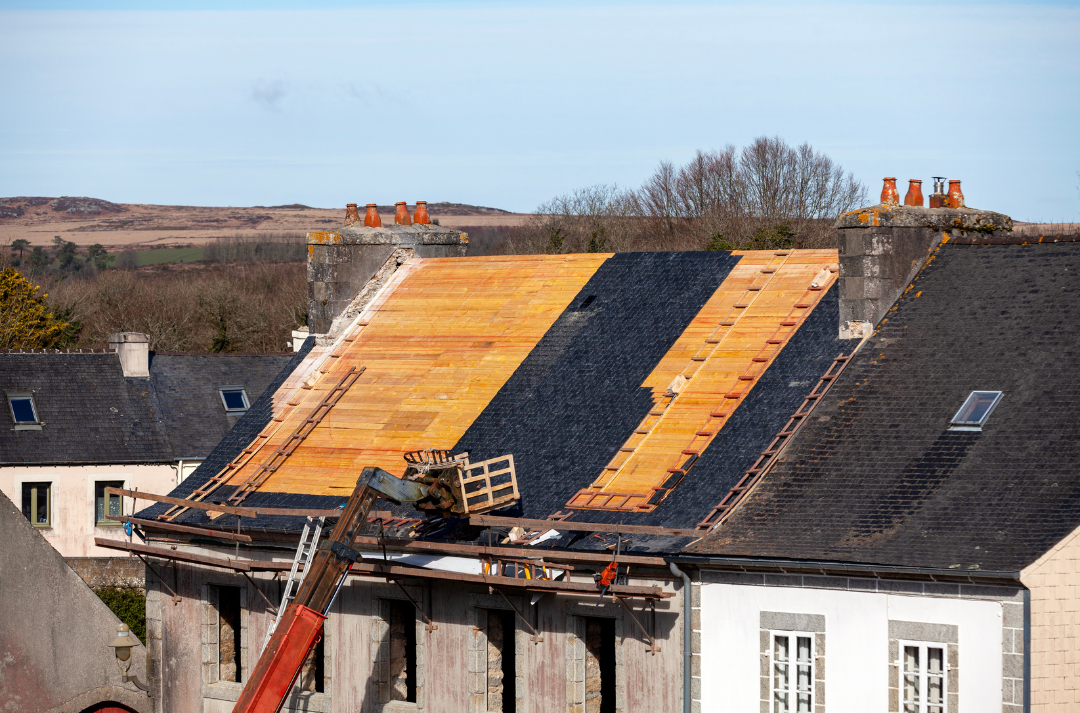When it comes to protecting your home, few things are as important as the condition of your roof. If your roof is nearing the end of its lifespan or showing visible signs of damage, you might be asking yourself: what should I check before committing to a roof replacement? This is not a decision homeowners make lightly, and it involves careful evaluation to ensure that the investment is worth it. Knowing what to look for before committing can save you money, prevent unnecessary repairs, and give you peace of mind that your home is secure.
Evaluate the age of your current roof
The first step in answering the question of what should I check before committing to a roof replacement is considering the age of your roof. Most asphalt shingle roofs last between 20 and 25 years, while higher-end materials like slate, metal, or tile can last much longer. If your roof is nearing the end of its expected lifespan, replacement may be the most cost-effective solution even if it looks intact from the ground. An older roof is more vulnerable to leaks, storm damage, and other costly issues that may only get worse over time.
Inspect for visible damage
Another critical part of deciding what should I check before committing to a roof replacement is examining visible wear and tear. Walk around your home and look for curling, cracked, or missing shingles. Check the ground for granules that may have washed off shingles, which is a clear sign of material breakdown. Look for sagging areas, uneven rooflines, or water stains on ceilings inside your home. Any of these red flags may indicate serious damage that requires a replacement rather than minor repairs.
Check for leaks and water intrusion
If you are wondering what should I check before committing to a roof replacement, do not overlook leaks. Water damage is one of the most telling signs of a roof failure. Go into your attic with a flashlight to look for water stains, mold, or damp insulation. Even small leaks can cause major problems if left unchecked, from structural wood rot to dangerous mold growth. If multiple leaks are present or repairs keep failing, a full roof replacement is likely the smartest move.
Assess ventilation and insulation
Another point when asking what should I check before committing to a roof replacement is ventilation. Proper attic ventilation keeps air circulating, preventing heat buildup in the summer and condensation in the winter. Poor ventilation can shorten the lifespan of your roof and lead to recurring repairs. Check whether your attic feels overly hot or stuffy, or if ice dams form on your roof during cold months. Combining new roofing materials with proper ventilation and insulation will give your home a stronger, longer-lasting system.
Review your gutters and drainage
Your roofing system works in tandem with your gutters to protect your home from water damage. If you are considering what should I check before committing to a roof replacement, look at how your gutters and downspouts are functioning. If they are clogged, sagging, or pulling away from the home, they may not be directing water properly. Poor drainage can damage your roof and foundation, which makes gutter repair or replacement an important step to consider alongside your new roof.
Consider the type of roofing material
One of the biggest decisions when thinking about what should I check before committing to a roof replacement is the material you plan to use. Asphalt shingles are the most common, but there are also architectural shingles, metal panels, clay tiles, and other premium choices. Each material has different costs, lifespans, and energy efficiency benefits. Take into account the style of your home, the local climate, and your budget when weighing these options. A professional contractor can help you compare materials and choose the best fit for your needs.
Look into warranties and contractor reputation
A roof replacement is a long-term investment, and part of deciding what should I check before committing to a roof replacement is ensuring that the contractor and materials come with strong warranties. Ask the roofing company what manufacturer warranties are offered on shingles, underlayment, and other components, as well as what workmanship warranties they provide. Research local contractors by checking online reviews, asking for references, and confirming licensing and insurance. A reputable installer will stand behind their work, giving you confidence in your investment.
Factor in long-term value, not just upfront cost
Many homeowners focus only on the price tag, but when asking what should I check before committing to a roof replacement, it is crucial to think about value. A roof replacement may seem expensive, but it adds resale value to your home, improves curb appeal, and saves you money on frequent repairs. High-quality materials and proper installation also improve energy efficiency, which reduces utility bills over time. Instead of choosing the cheapest bid, consider what roofing solution will provide the greatest long-term benefits.
Plan for timing and weather
Finally, if you are evaluating what should I check before committing to a roof replacement, consider the timing of the project. Roof replacements are best scheduled during seasons with mild weather, such as spring or fall, to reduce delays and ensure proper installation. Planning ahead also ensures that your home is not left vulnerable during harsh winter storms or heavy summer rains. Working with a contractor who schedules efficiently and prepares your property properly will make the process smoother.
Conclusion
If you are wondering what should I check before committing to a roof replacement, the answer involves a thorough assessment of your roof’s age, visible condition, leaks, ventilation, drainage, materials, warranties, and timing. Taking the time to evaluate these factors ensures that you make a smart investment in your home. A roof replacement is one of the most significant home improvement projects you can undertake, but with the right knowledge and a trusted contractor, you can feel confident that your new roof will protect your home for decades to come.

